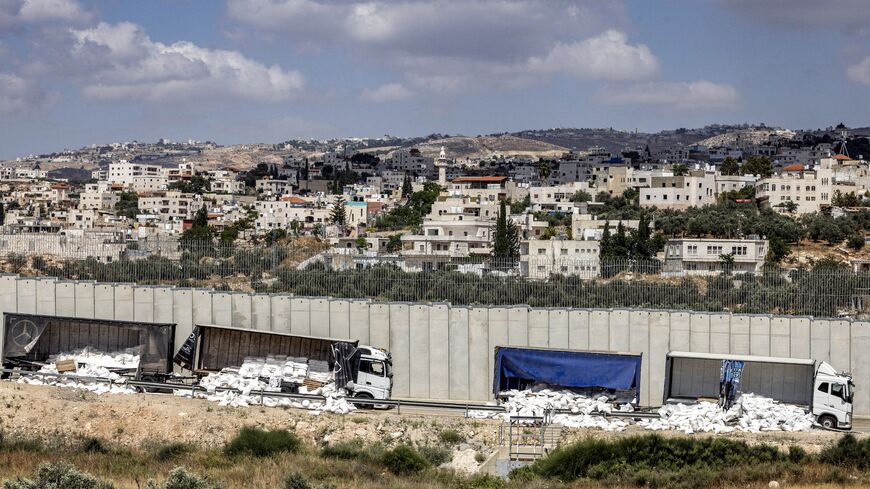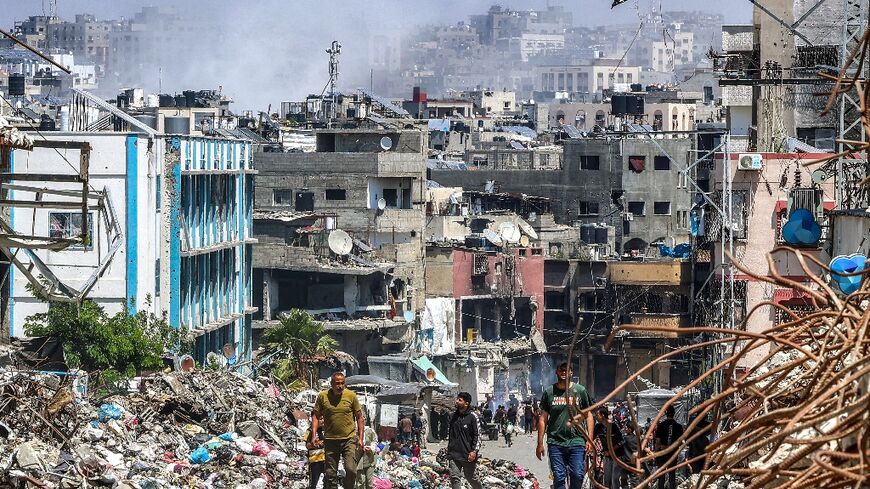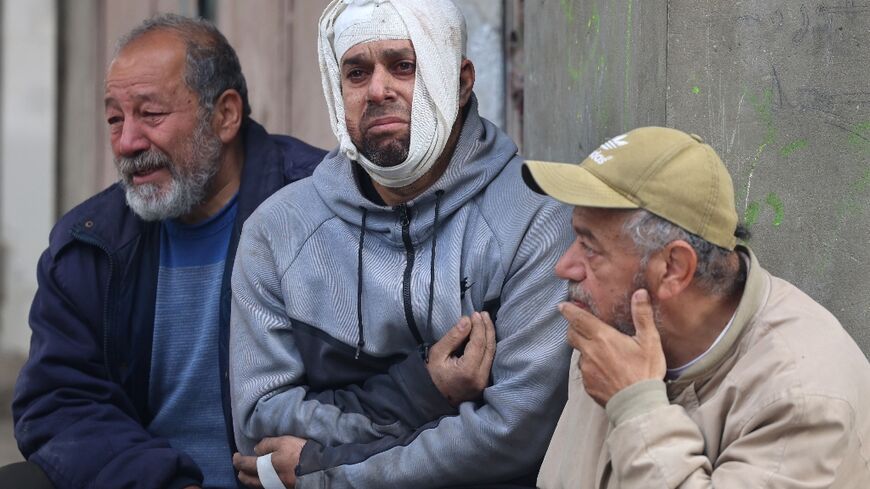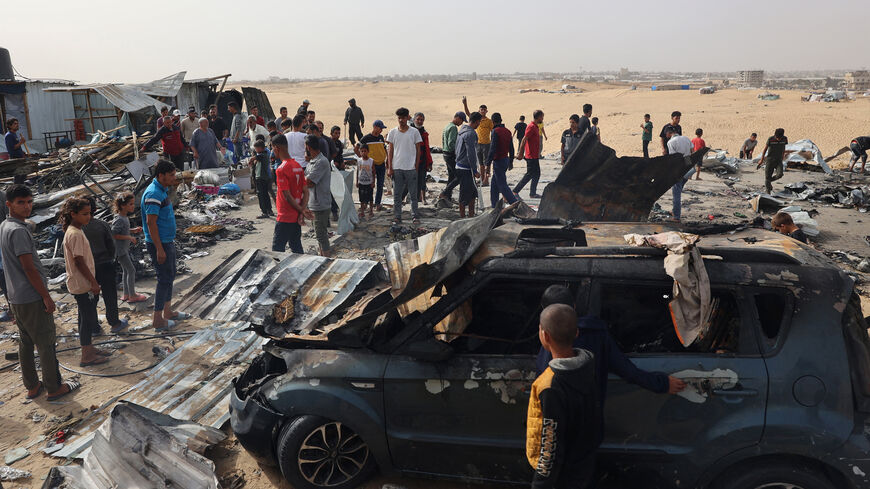HRW says Israel launched 8 airstrikes on aid workers in Gaza
The report comes amid outrage following the killing of a foreign UN worker in Israeli fire on an aid convoy in Rafah.
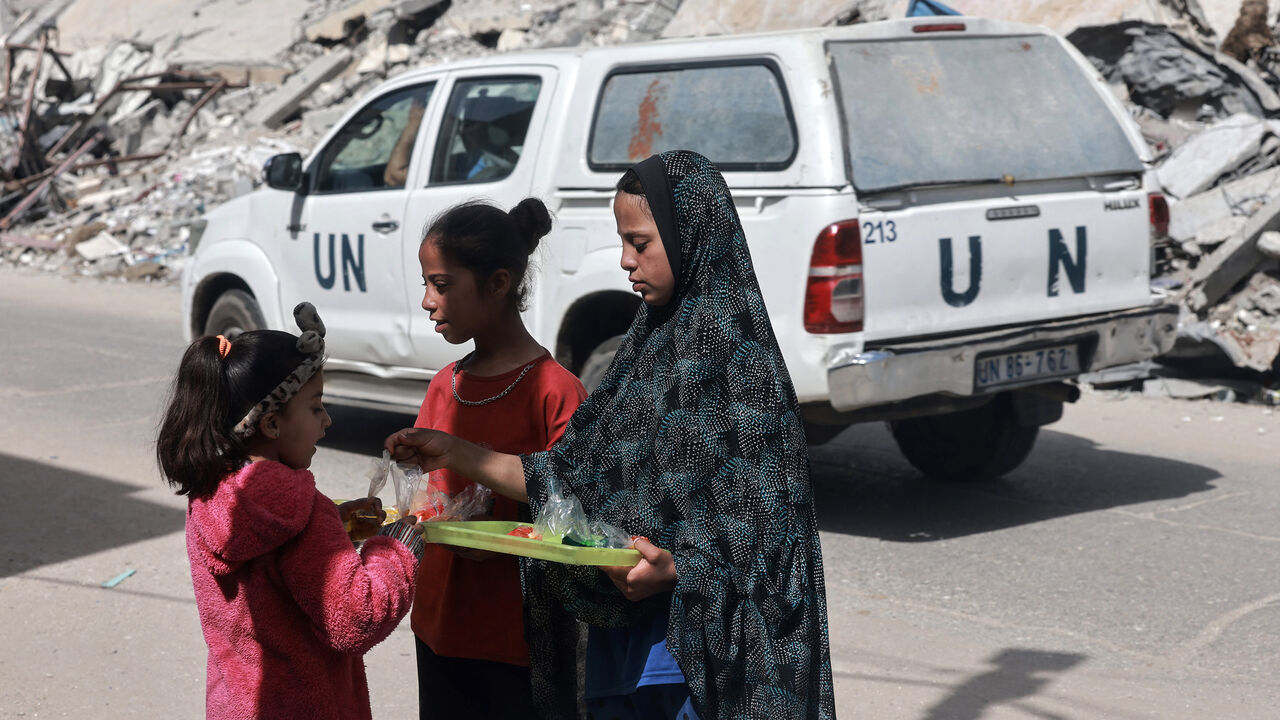
Israeli forces have carried out at least eight airstrikes on humanitarian convoys and their facilities in the Gaza Strip since the Israel-Hamas war erupted Oct. 7, killing or injuring at least 31 aid workers and those with them, Human Rights Watch (HRW) said in a report on Tuesday.
The New York-based rights group said Israel did not issue advance warnings to the aid organizations before any of the strikes even though the groups had shared their coordinates with Israeli authorities.
HRW has documented several deadly attacks against known locations of aid workers that have occurred since Oct. 7. In one incident, seven aid workers with the US-based World Central Kitchen charity were killed April 1 in Israeli strikes on Deir al-Balah in central Gaza.
The rights group described the incident as “far from being an isolated ‘mistake.’”
“This pattern of attacks despite proper notification of Israeli authorities raises serious questions about Israel’s commitment and capacity to comply with international humanitarian law,” HRW said.
The HRW report comes one day after a United Nations convoy came under Israeli fire in Gaza’s southernmost city of Rafah on Monday, which resulted in the killing of a foreign staff member. The attack also wounded a Jordanian UN worker.
UN deputy spokesperson for the secretary-general Farhan Haq confirmed the attack, saying that the two aid workers were in a UN-marked vehicle heading to the European Hospital in Rafah when they came under fire.
Speaking to reporters in New York on Monday, Haq noted that the staff employee who was killed was a member of the UN Department of Safety and Security (DSS).
“With the conflict in Gaza continuing to take a heavy toll — not only on civilians, but also on humanitarian workers — the Secretary-General reiterates his urgent appeal for an immediate humanitarian cease-fire and for the release of all hostages,” Farhan said, quoting Secretary-General Antonio Guterres.
The UN did not identify the victim, but Indian media said he was a former Indian army officer who was working for the DSS. His identity was not revealed.
Jordan also condemned the attack, calling for the protection of aid workers in Gaza. In a statement on Tuesday, the Jordanian Foreign Ministry held Israel responsible for the attack.
The statement added that the ministry is following up with the UN on the medical situation of the Jordanian citizen who was wounded in this attack and on securing her safe return from Gaza.
The Israeli army, for its part, said that it received reports that two members of the DSS were hit while in Rafah. “An initial inquiry conducted indicates that the vehicle was hit in an area declared an active combat zone,” the military said in a statement to Agence France-Presse on Tuesday, adding that it was not made aware of the convoy’s route.
The statement, however, did not attribute responsibility for the attack, saying the incident is still under review.
Worsening humanitarian crisis in Gaza
Monday’s attack marked the first international UN fatality in the Gaza war. At least 254 aid workers have been killed in Gaza between Oct. 7 and April 30, according to the UN humanitarian office, OCHA. These include 185 UN staff members and 27 staff and volunteers from the Palestine Red Crescent Society (PRCS).
The humanitarian situation in the Gaza Strip has reached catastrophic levels according to UN agencies, as Israel presses on with its offensive against Hamas while continuing to enforce a stifling siege on the coastal enclave.
The Israeli military closed the Rafah border crossing with Egypt last week, which it seized ahead of its imminent invasion of the city. It had also briefly shut down the Kerem Shalom crossing with the southern Gaza Strip following a Hamas rocket attack that killed four Israeli soldiers last Sunday. Although the crossing was reopened, aid groups say access to the crossing is difficult due to the ongoing fighting in the area.
The two crossings were the main entry points for life-saving assistance to the Gaza Strip.
Last week, the UN refugee agency said no aid or fuel was entering Gaza as military operations are continuing in the crossing areas in Rafah.
In light of the worsening conditions, the International Committee of the Red Cross (ICRC) announced in a press release on Tuesday that it was opening a field hospital in Rafah, in coordination with 11 Red Cross National Societies, including the PRCS.
The ICRC said the project will “help address the overwhelming medical needs emanating from the ongoing conflict.”
The field hospital will include 60 beds to provide medical care for about 200 people per day, it added.
The UN refugee agency (UNRWA) said Tuesday nearly 450,000 people have been displaced from Rafah since May 6, when Israel’s limited operation in the city began.
“People face constant exhaustion, hunger and fear. Nowhere is safe. An immediate #ceasefire is the only hope,” UNRWA wrote on the X platform.
Rafah had already been sheltering an estimated 1.3 million people who had fled the intense fighting in the northern and central areas of Gaza at the onset of the war.



